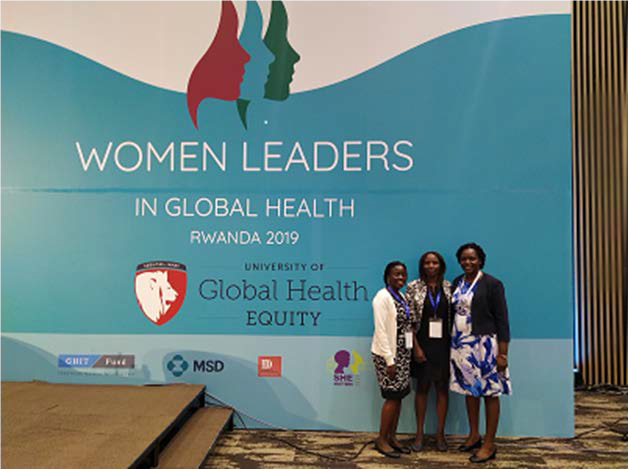
WLGH 2019 held in Kigali Rwanda 9-10th November, was the third of it’s kind - following on from the first meeting in Stanford, California, USA in 2017 and the second in London, UK in 2018.
The conference organisers were therefore proud that a country in Africa hosted in 2019 and that Kigali was chosen as the third venue to host the ever-growing meeting. This feeling of pride showed throughout our stay in Kigali.
Kigali, they reported was a fitting venue; a true testament to the commendable strides and progress Rwanda has made in improving equity in health and the health of her people.
Global health in Rwanda at a glance
• From a maternal mortality ratio of 1,130 deaths per 100,000 live births in 1998 to 248 deaths per 100,000 live births in 2017;
• From an infant mortality rate of 117 infants in 1998 to 27 in 2018
• To the doubling of the life expectancy 25 years after the devastating genocide in 1994
• Child immunization rates were reported to be consistently above 98% in the recent past
• Rwanda currently leads the way in show casing that UHC can be achieved even in LMICs.
• Praise to the leaders in Rwanda, for investing in the population’s health therefore, flowed freely at the WLGH 2019.
Conference Overview
Officially opened by H.E. Jeannette Kagame, the first lady of Rwanda with two keynote address speakers and advocates for equity in Global Health; Dr Paul Farmer, an ardent supporter of health equity and the founder of Partners in Health (PIH) he is currently Chancellor of the University of GH Equity (UGHE) in Rwanda; and Her Royal Highness Princess Dina Mired of Jordan a champion for women health, a strong anti-cancer advocate and a former director general of the King Hussein Cancer Foundation in Jordan. The opening ceremony was crowned with a celebration of Rwanda through traditional dance.
Between 6th to 13th November 2019 at the Kigali Convention Centre, a programme of various activities was planned as well as the conference including, several meetings and mentorship workshops for upcoming early and mid-career women, held at the Kigali Convention Centre.
The agenda for the 9th-10th November was rich and delivered a unique and diverse conference. It included great speakers who were mainly female but ensured male participation as well; diverse oral and poster presentations from young female Global Health delegates and an introduction to the world of media and Global Health through the Hamwe Festival. The Hamwe festival was described as “An Arts and Global Health Collaboration” and featured an art exhibition, conversations with a philosopher, an inaugural “She Matters” music concert and many more expressions of art and its role in Global Health.
Key Highlights
- A call for women to hold more leadership positions in Global Health organisations:
According to the World Health Organisation (WHO) women reportedly make up 75% of the health workforce in many countries but hold only 25% of leadership roles and while up to 84% of Global Health students are women, they hold only 24% of Global Health faculty positions and a quarter of directorships in Global Health centres. Throughout the conference several speakers called for this glass ceiling to be broken.
- The role of global leaders in the fight for health equity was emphasised.
Countries need “careful policies and high-quality investment in healthcare” from the highest levels of leadership.
3. There is need for a gender lens to be consistently applied across all Global Health strategies and the current emphasis on universal health coverage should ensure to addresses the gender equity gap and “acknowledge and empower the other half of the worlds population who already carry up to 75% of the Global Health burden”.
4. Networks and organisations focussed on opening doors for women leadership need to be funded
5. Several cross-cutting topics including women and climate change, women and mental health, women and career growth and mentorship were all discussed. And all pointed to deliberate actions to protect women who are disproportionately affected in all these areas.
by Irene Ayakaka, IMPALA PhD Fellow